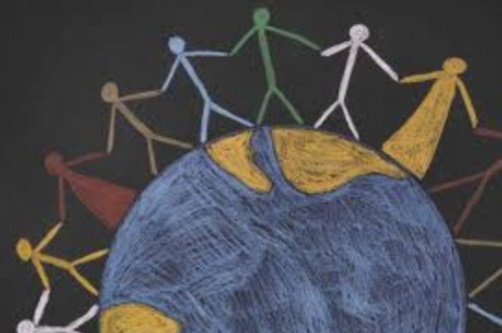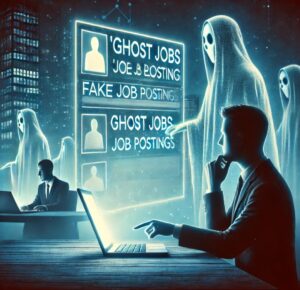
Let's explore why dehumanization might be increasing in modern society—and what we can do about it.
The Normalization of Evil
What is evil?
Evil is defined as profoundly immoral. The definition itself holds the reason for the escalating evil in our world. Though it may not be obvious at first, it all hinges on the word immoral.
The word immoral presents an intricate problem for our culture. Morality is almost never mentioned. I cannot recall the last time I heard the mainstream media describe something is immoral every type of perversion and depravity has become someone’s personal preference and right.
When we pretend that there is no such thing, as right and wrong, good and bad this will inevitably lead to the proliferation of evil and it has
When immortality becomes your morality, you are profoundly lost in immorality and has become the morality of an alarming number. The most influential people in our society.
Our daily consumption of media and entertainment that relentlessly celebrate immorality, as personal preference and depravity as a personal right has desensitized us to the reality and effects of evil.
The normalization of every immoral act on television continuously interferes with our moral compass. We can no longer discern true north. How is the normalization of staggeringly grotesque and immoral more immoral acts accomplished? Gradually, and by repetition.
Track the history of depicting violence, drug use, murder, nudity, and graphic sexual assault in entertainment – with these two themes in mind – and it’s easy to see how we ended up here, it happened gradually and with relentless repetition, it is the story of the frog in boiling water. We are the frog.
This is how we become desensitized to evil. It shouldn’t be no surprise that we now have generations of morally ambivalent people living value free lives. This is how every form of evil is permitted to thrive and society, poverty, oppression, destruction, violence, discrimination, corruption and slavery to name but a few.
The evil you normalize will occur ever increasingly in society.
Every Age has new storytellers. But one truth in doors we become the stories we read here and watch. Today storytellers appear to be committed to the normalization of evil and by extension, the annihilation of human dignity not the dignity of some anonymous people, but the annihilation of your dignity, my dignity and the dignity of our spouses, children, grandchildren, friends, colleagues and neighbors. Evil is much closer than we suspect.
Dehumanization
What’s really happening here? We are dehumanizing a whole civilization by desensitizing people to evil. When you dehumanize people, it changes the way they treat each other. People become to debase each other, rather than ennobling each other. For example, brutality debases us while love and respect, enable us. Do we live in society of love and respect or society of brutality? The question itself is unsettling. The answer is not binary, but still too much of our society is engaged in various forms of brutality, to dismiss the question.
We sterilize every form of brutality by placing it at a distance and depersonalizing it. We prefer hypothetical and philosophical discussions about evil to personal explanation of the topic, personal exploration of the topic. But the effects of evil are always deeply personal.
Rape is one of the most brutal acts a person can experience and one of the most dehumanizing and it hasn’t been increasingly depicted on television.
One in six women in America has been a victim of rape. That is just one statistic. There are dozens that could be cited. One more disturbing than the last. But statistics are cold and distant. They allow us to place evil at a distance so let me say it another way. One in six of our daughters, wives, sisters and mothers have been raped.
It is also worth noting that the rape of a male is virtually non-existent on television, making the particular form of brutality and dehumanization almost exclusively aimed at women and entertainment. The word itself should give us pause. Entertainment, rape as a form of entertainment. isn’t that what we are talking about in the context of television, movies and books? annihilating the dignity of women in this way goes virtually unchallenged.
This is just one example. Evil is real and much closer than we want to acknowledge. But I have never heard of anyone winning a war by pretending they weren’t on the battlefield. Until evil touches us in an inescapably personal way, we either don’t think of it at all, or we think of it as something distant.
Closer Than You Think
If we really want to understand the mess, we have to explore our role in it. The uncomfortable reality is that we all participate in evil. We avoid knowledge in this by confining our conversations about evil to things that we think would never do or be avoiding the conversation altogether. But it’s true. We all participate in evil.
Let’s consider the definition of evil again. Evil is defined as profoundly immoral. Have you ever done something that has negatively altered the course of your life? Or someone else’s? That profoundly immoral.
I’ve done it. I did it yesterday. I will take great effort not to do it again. Today. Most of us participate in evil every day and are oblivious to it. The most common and insidious example is gossip. This is perhaps the everyday evil that has been most normalized.
If you’re planning to murder someone, I suspect you would have all types of anxious feelings leading up to the event. But if you murdered someone every day, how long would it be before you no longer had those feelings? Human beings can become desensitized to even the most horrific things, and we have become desensitized to how profoundly gossip affects everyone involved. Most of us don’t think of ourselves as murderers but as easy to murder someone’s reputation with gossip.
The power of speech is unfathomable. Gossip can never be undone. It is cruel, divisive and demeaning. It alters the way people see another person forever. It robs the victim of dignity and opportunity.
I am ashamed that I ever engaged in gossip about others. Even when I write these words, I observed myself sterilizing the act, distancing myself from it with my choice of words: engaged. But I know I have harmed people by participating in this everyday evil. They may never know the harm I have caused them, but that doesn’t make it less so. I know I caused harm to their reputations, and it is impossible for me to know the pain that I caused them or the opportunities they were excluded from because of my gossip. I have also been the coward who sat silently listened passively, with others assassinated someone’s character. And I have been the fool who piled on with others were gossiping about a person, kicking a man while he was down.
We are we have all been on the other side of this injustice to you have suffered at the hands of gossip. I have to I have been murdered 1000 times by gossip. It’s an occupation hazard before anyone who works who work puts them under public scrutiny. But that doesn’t make it easier.
This is why I chose gossip as our example of everyday evil, because I don’t know a single person who hasn’t been the perpetrator and the victim. We have all been on both sides of the evil.
Gossip can destroy a person’s reputation, affect the direction of their lives forever, and shatter their self-esteem. It can also lead to anxiety, depression, addiction, suicidal thoughts, and so many other outcomes that cannot be foreseen. The unintended consequences of gossip are of a different magnitude than the unintended un-intended consequences are of a different magnitude than the intended consequences. The intended consequences may be micro, while the unintended consequences are macro. Gossip can literally ruin a person’s life.
Let’s look now at the harm gossip causes us. Gossip hardens our hearts. You have to harden your heart toward a person in order to gossip about him or her. The hardening of the heart is an unavoidable prerequisite of gossip. But we harden our hearts toward one person, we harden our hearts toward all people including ourselves. Gossip therefore leads us to become indifferent to another person suffering. This is just one way it dehumanizes us.
Gossip attacks our own self esteem. Pointing out the faults and imperfections of others only draws attention to our own faults and imperfections. How do you feel when you gossip? You were probably disgusted with yourself in the moment. Did you think more of yourself or less of yourself after gossiping? How do you think it made the person you were gossiping with feel about you? If you do something that causes you to think less of yourself, isn’t it inevitable that others will also think less of you?
Gossip is a destroyer of relationships. It breeds distrust and bitterness. People don’t like people who gossip, and they don’t trust them. Gossip promotes envy and division, and it will ultimately separate us from people. When we gossip, we are announcing to the world that we speak maliciously about others, that we are insecure or feel threatened, and that we cannot be trusted. Gossip divides and destroys.
Gossip plays havoc with our emotions. It breeds fear, anger, jealousy paranoia, anxiety, depression, and even hatred. It also leads to loneliness, because knowing that we cannot be trusted, leads us to think that others cannot be trusted, and that we are all alone in the world. The toxicity of gossip makes our soul sad. And there is one thing we should pay very close attention to, it’s anything that makes our soul sad.
Every day we participate in conversations that could easily turn into gossip If we are not careful. How do we know when a conversation crosses the line? We could put together a list that includes speaking negatively or maliciously about someone, making a person appear incompetent, or adequate, making public what should be kept private, criticizing or lying about a person and so on. It would be a long list. But gossip is one of those things you know it when you see it.
It doesn’t hurt to have a couple of quick litmus tests at the ready to gain clarity as situations are playing out. Will others other people think less of the person you’re speaking about If you say what you are about to say? Would you like someone else to say those things about you? Reason and motive are also powerful indicators. Why are you saying it? Do you have a valid reason for saying what you’re saying? What is your motive for saying it?
When you find yourself on the receiving end of evil you feel ludicrously impotent-because you are. Try to gather up one piece of gossip just one lie that has been told about you, and you quickly discover how impossible it is to erase gossip from people’s hearts and minds. That’s the thing about evil, It makes you feel helpless, powerless, impotent.
If I had a dollar for every time…
The phrase originates from the writings of Mark Twain. In the book More Tramps Abroad, he wrote, “If I had a dollar for every person killed by snake bites per year in India, I would rather have it than any other property.” It has been used in many forms since, though perhaps never again, in relation to snake bites. The dollar has been replaced with a nickel, penny or quarter. The snakebite has been replaced with too many things to mention. But the point is, most people realize that if you could receive a small sum of something that happens often, they will become wealthy. In Mark Twain’s case. That was snake bites and fifty-thousand people die of snake bites each year in India- a number that has remained astoundingly steady since he penned those words.
Now imagine you had dollar for every time someone gossiped about someone else. This business is called social media. Today, the most valuable platform is worth more than $550 billion.
Some people will defend social media, citing its virtues, such as staying connected with family and friends, online learning, opportunities for more remote work, quick access to information, and philanthropic and civic engagement. But its vices are considerably narcissistic behavior; cyberbullying; social media addiction, self-esteem issues; Impatience; shortened attention span; social anxiety; fake friends; sexual predation; unrealistic perception of other people’s lives; unrealistic expectations of one’s own life; confusion about the nature of friendship; hyperbolic peer pressure; invasion of privacy; identity theft; behavior monitoring; toxic, offensive, demeaning, and inappropriate content; mental health issues; sleep deprivation; the domination of extremism over rational, measured voices; decreased creativity; censorship; and of course, the industrialization of gossip.
Social media has made it easier than ever to ruin a person’s reputation. The damage you can do persons via these platforms is almost limitless. That is especially true because the world of social media is uniquely unforgiving. Do you want to live in a world without forgiveness? A world without second chances and new beginnings? Do you want to live in a world where you don’t even get a chance to admit that you are wrong and that you can do better? A world where you are just written off and dismissed? This is the world social media has created.
There are also other significant and far-reaching problems that have emerged from the industrialization of gossip- two in particular:
First social media has shifted the burden of proof from the accuser to the accused. Guilt by accusation is very dangerous indeed. There are significant reasons the legal systems in all civilized nations place the burden of proof on the accuser. Primary among them is the fact that it is impossible in most situations to prove innocence. This is why our legal system considers a defendant innocent until proven guilty. It is also why a defendant is declared not guilty rather than innocent. By shifting the burden of proof, social media has become uniquely uncivilized.
The rise of social media has also caused irreparable damage to the craft of reporting the news. The skill, integrity and professionalism required to accurately reporting the happenings of this world are quickly becoming a lost craft. Opinion now dominates news. The quest for truth has been subordinated to personal agendas. The media is no longer satisfied with the humble professionalism of reporting the actual news and letting us decide for ourselves what it means. Swept up in the self-importance in celebrity hey now feel the need to tell us what to think about the news.
with news broadcasting have shifted further. And further in this direction if social media had not entered our culture? It is a question worthy of consideration.
There is no question that the quality and integrity of the news media was much higher before the rise of social media. The immense popularity of social media has dragged news further and further toward entertainment. In an effort to compete with social media, traditional news outlets have drenched themselves with opinion in a futile effort to hold on to people’s attentions, ratings, and advertisers. The craft of reporting the news has been replaced by new entertainment art that prioritizes opinions and agendas over facts of the stories being reported.
How will the news media reinvent itself next? Where is the new opportunity? My hope is that a growing percentage of people at both ends of the political spectrum would like to have the news reported to them accurately and without bias or opinion.
The quantity of news coverage is measurably greater than ever before, but the quality of the news being reported has been significantly compromised. This is the question I find myself pondering: which are the most important stories reported over the past fifty years would not be reported in today’s environment?
The negative impact of social media is only beginning to be discovered, but you can be sure it is more far-reaching than the self-esteem of teenagers. The way it is being used to attack our rule of law and destroy the way news is reported are just two examples. Social media is like a drug that has been on the market for twenty years before they discover it is causing cancer.
I appreciate that. Some people will argue that social media is responsible for some good in the world. I don’t disagree. But if I murdered people every day and then volunteered at the local soup kitchen serving the homeless on Saturday mornings, at what point would you question my integrity?
Social media has industrialized and commercialized. gossip. It is the most effective tool for negativity in the history of the world, profiting every day for the misery of millions. If gossip is dehumanizing, social media is a systematic dehumanizing the whole culture. If we reflect on my discussion about evil and gossip at some point, all men and women of goodwill have questions to consider. Does social media advance or detract from person’s ultimate happiness? Is it possible that world that the world would be a better would be better off without it?
more concerning than the answers to these questions, is our unwillingness to rigorously explore the questions themselves as individuals as a society. I am not fool enough to think that we can put social media back in Pandora’s box, but exploring these questions can radically alter the role we allow it to play in our lives and in society. But perhaps the reason we refuse to do so, is because we are afraid, we will discover that the internet is a modern version of Pandora’s box – a gift that at first seems valuable, but in reality, is a curse, the source of great in unexpected troubles.
The great reharmonization
next topic, the future of humanity depends on great movement of re-humanization This is a vast claim, but I believe it to be true and don’t make it lightly.
What is reharmonization? Rehumanization is the effort to reverse the effects of dehumanization by restoring human dignity, helping each and every person develop a healthy sense of self, and reprioritizing people above money, objects, systems, and institutions.
Rehumanization is about learning to be human again, which may sound strange, but it’s amazing how often in how many ways the average person experiences dehumanization.
Dehumanization takes many forms. Some things that are dehumanizing by their nature, by their very nature, for example, violence, slavery, abuse, injustice, torture, poverty, poverty, sexual abuse, discrimination, gossip, objectification, and genocide. These are many other things there are many other things that can be do you human dehumanizing, such as work technology, debt, humor, laws, entertainment, social media, and even education or consensual sex.
Anytime the value and individuality of a person are being denied that person is being dehumanized. And the more someone has been dehumanized, the more that person will operate out of primal tendencies of fight-or-flight.
The process of re humanization reminds us of what it means to be an individual of worth. It rekindles a healthy sense of personal identity and helps us to rediscover our humanity.
Rehumanization is about learning to see ourselves and others as human again. It may sound ridiculous, but you would be amazed at how many ways we have been conditioned not to see ourselves as human beings. One of the most blatant and common examples is our inability to express our needs. To be human is to need, and yet, we have been conditioned to believe that is not alright to need certain things.
in order to see and value the humanity of another person we have to be able to see and value our own humanity. Learning to accept that we are wounded and broken is essential to the process of reharmonization. Discovering your own brokenness and realizing that you can be put back together and healed to become more beautiful, and more lovable than ever before, is the summit of rehumanization.
Human beings with a healthy sense of self when their basic needs are met, and their survival is not threatened, want good things for other people. Anyone who wishes another person unhappiness or harm, anyone who doesn’t desire good for others, is in a dehumanized condition. Emotionally Healthy human beings desire good for each other. At our best. We are kind, well-meaning, generous, compassionate, benevolent, thoughtful, sensitive, tender, warmhearted, and empathetic.
Empathy is a leading indicator of human flourishing, while lack of empathy is a signal that a person is in a dehumanized state. Empathy is the natural condition for a human being who is mentally, emotionally and spiritually healthy. This is what it means to be humane.
It is a time to turn our effort toward the great rehumanization of the human family. It’s time to focus on things that support humanization. It’s a time to celebrate those things that bring out the best in people.
To accomplish this, a great shift in our culture is necessary. Our focus on money dehumanizes our relationship by making them transactional. Our focus on things leads us to dehumanize each other by objectifying people. Our focus on appearances dehumanizes our relationships by making them disingenuous. It’s time to move beyond a money-oriented way of life., beyond an object-oriented way of life, beyond an appearance-oriented lifestyle, and create a people-oriented society.
Is there any more urgent task before society today? Which of our problems would not be solved by seeing ourselves and others as human beings again, and treating ourselves and others as human beings of infinite individual value? Let’s put our efforts toward rehumanization.
Why are we are wasting endless hours on social media or whatever our preferred way of wasting time is, the great suffering in the world goes unaddressed. I think about my own collaboration with evil. I think about the many times I have hurt other people throughout my life – sometimes intentionally, but mostly out of self-absorption and lack of awareness. I think about the ways I have dehumanized others. Tw0 things haunt me when I reflect on these things: the hurt I have caused and the good I could have been doing if I hadn’t been so busy being stupid and selfish.
The subtlest evil of all is the opposition of love. Its diabolical and insidious. It isn’t hatred, there is nothing subtle about hatred. The opposite of love is indifference. It is the Pied Piper that leads millions into despair. But indifference is not a force unto itself in the universe. It can only be expressed by one person to another person, from one group of people to another group of people. Indifference cannot survive in this world, outside the human heart. So let us banish it from our hearts.
We have all been indifferent toward the dehumanization of other people, perhaps because we have been dehumanized ourselves. Now is the time to embrace our own rehumanization and champion the humanization of every man, woman and child.
We can be ambassadors of hope.







